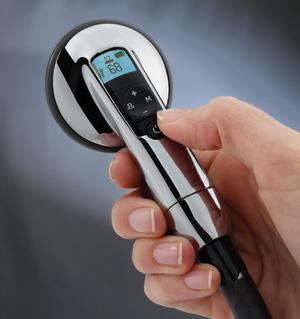
August 21, 2009 – 3M today introduced the 3M Littmann Electronic Stethoscope Model 3200, a next-generation auscultation device featuring Bluetooth technology that wirelessly transfers heart, lung and other body sounds to software for further analysis.
The company said the introduction signals a new age in stethoscope technology that will help enhance clinicians’ natural abilities, and enable healthcare providers to confirm diagnoses and more easily gather a second opinion from colleagues.
The company partnered with Connecticut-based Zargis Medical to develop two companion software packages exclusively for the Littmann Electronic Stethoscope Model 3200. Specifically:
• Zargis Cardioscan software easily pairs with the Littmann Electronic Stethoscope Model 3200 to guide the clinician through four main cardiac sites, then after approximately one minute, indicates whether or not the patient possesses a suspected diastolic or systolic murmur, and whether or not the murmur is suspected to be a class I indication for echocardiography referral.
• Zargis StethAssist software, included with the Littmann Electronic Stethoscope Model 3200, allows clinicians to visualize heart, lung and other body sounds, play recordings at slow speeds to hear more clearly, and save recordings for comparison to future auscultations.
• StethAssist and Cardioscan recordings and related patient notes are stored electronically and can also be sent to colleagues for a second opinion.
“The combination of the Littmann Electronic Stethoscope Model 3200 and the Zargis Cardioscan diagnostic support software arms clinicians with a valuable tool that provides results during the patient exam,” said Joseph Tartaglia, M.D., a practicing cardiologist in White Plains, N.Y., and clinical assistant professor of medicine at New York Medical College in Valhalla, N.Y. “The ability to record and automatically analyze heart sounds can help improve a clinician’s confidence, document complex auscultations, and may keep some patients from going through additional, unnecessary testing.”
According to a retrospective study published in Clinical Cardiology in 2008, physicians using Cardioscan results reduced their false negative referral decisions for heart murmurs by an average of 46 percent and reduced their unnecessary referral decisions by an average of 41 percent.
For more information: www.Littmann.com, www.3M.com


 November 12, 2025
November 12, 2025 









